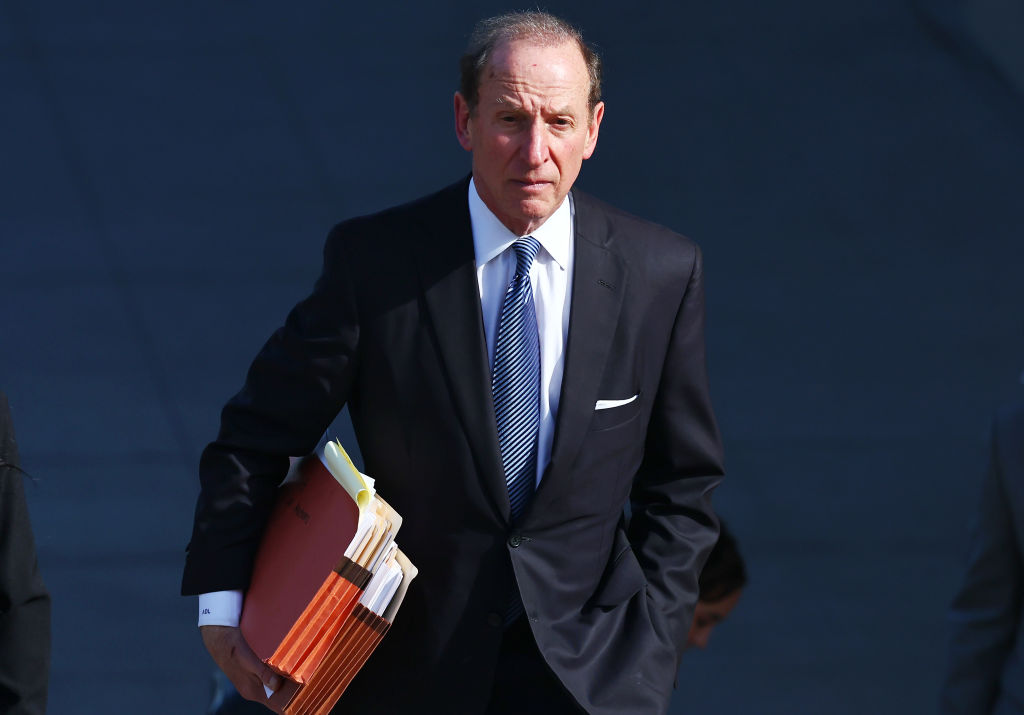Justice Department Reaffirms Ban on Politicizing Investigations
The Justice Department strictly prohibits using investigations and prosecutorial power for political purposes, including public discussion and politically motivated pursuits of criminal cases.
Subscribe to unlock this story
We really don't like cutting you off, but you've reached your monthly limit. At just $5/month, subscriptions are how we keep this project going. Start your free 7-day trial today!
Get StartedHave an account? Sign in
Overview
- The Justice Department strictly prohibits the use of its investigative and prosecutorial powers for political purposes, emphasizing a commitment to impartiality.
- This prohibition specifically extends to publicly discussing ongoing criminal investigations, aiming to prevent any appearance of political influence or bias.
- The department also forbids initiating or continuing criminal pursuits with the explicit goal of achieving political ends or serving partisan interests.
- These stringent rules are in place to safeguard the integrity of the justice system, ensuring that all legal actions are based solely on facts and law.
- Adherence to these guidelines is crucial for the Justice Department to maintain public trust and its essential role as an unbiased and fair enforcer of the law.
Report issue

Read both sides in 5 minutes each day
Analysis
Center-leaning sources frame this story by portraying Ed Martin's actions as politically motivated "weaponization" stemming from "Trump's retribution campaign." They emphasize the strong condemnations from Attorney General James's lawyer, characterizing Martin's conduct as defying ethical standards and being a "bizarre, made-for-media stunt," thereby undermining the legitimacy of his investigation.
Articles (4)
Center (1)
FAQ
The Justice Department has policies that strictly prohibit using investigations and prosecutorial powers for political purposes, including not selecting the timing of investigative steps or charges to influence elections or benefit political parties. These include guidelines discouraging public discussion of ongoing investigations and forbidding initiating prosecutions for partisan reasons.
Proposals like the Security from Political Interference in Justice Act would require the White House and DOJ to log communications about specific cases, with these logs reviewed by Justice Department ombudsmen and shared with Congress. This aims to provide oversight and prevent undisclosed political influence over investigations.
Historically, incidents such as President Nixon firing the Watergate special prosecutor and President George W. Bush’s administration dismissing U.S. attorneys for political reasons have challenged DOJ independence. These events led to calls for reforms to insulate the DOJ from political interference, including legislative proposals to regulate White House-DOJ communications and considerations of fixed terms for the attorney general.
Traditional norms and constitutional policies dictate that federal prosecutors act independently and are not subject to presidential or congressional orders to initiate investigations for political purposes. Violations of these norms, such as pressure from the White House to investigate political opponents, threaten the impartiality and fairness of the criminal justice system.
Avoiding politicization is crucial to safeguard the integrity of the justice system, ensure all legal actions are based on facts and law, maintain public trust, and uphold the DOJ's role as a fair and unbiased enforcer of the law. Political influence could undermine fairness and public confidence in legal outcomes.
History
- This story does not have any previous versions.


